Update, 5.28.2020: My lending the impression that the 1999 Brit version by Trevor Nunn of Oklahoma followed the original script with fidelity was totally wrong. This deception comes through in an "extras" on the DVD with Mary Rogers raving about the show as the best version she ever saw and stating that what we see see was all there in the beginning. NO, it was not. Turns out, according to an in-depth review of the Trevor Nunn production by John Heilperm, in the New York Observer, that Nunn "added dialogue" from the original source, Green Grow the Lilacs, upon which Oscar Hammerstein II had adapted his libretto. I wondered why the film of the show is so long -- a good half hour longer than the 1943 production. So I followed the script in book form as I listened to the movie. There are revsions here and there; most of all Nunn works overtime to build up the character and menace of Jud Fry by adding scenes.
Recent new film versions of Rodgers & Hammerstein shows introduce the public to darker songs and scenes excluded from movie adaptations; NBC wisely respected the stage script.
This weekend, I see that ABC will be airing -- what I think is an annual event -- the movie version of The Sound of Music, starring Julie Andrews. Of all the Rodgers and Hammerstein hits that made it onto film -- and they all did --this one is by far the best known to the public at large. Indeed, the only one of their shows to reach true populist appeal in the cinema.
The other R & H musicals have not endured nearly as well. Many have been re-staged or re-conceived for Broadway and television, to mediocre results. The track record is strewn with oddball adaptations. In movie form, like Music, they favor sweetness and sentiment over the more realistic elements that assumed a more prominent role in the stage productions.
Cinderella in PC Overdrive
ABC's 1997 adaptation of the team's 1957 made-for-TV Cinderella played the PC Card in overdrive, added songs form other shows, gave the stepsisters a strange obnoxious edge -- and hasn't been seen from since.
Cinematically famous for the last musical they took to Broadway
So loved has The Sound of Music become, that audiences convene inside movie houses for sing-along-versions of the movie. And if Julie Andrews is primarily responsible for the film's enduring success, she must share co-credit with a glorious set of winning Rodgers and Hammerstein songs. "Climb Every Mountain" is surely better known today than the arguably superior "You'll Never Walk Alone" from Carousel. When I first heard it off the original cast album, I knew what they were up to -- let's write another You'll Never. It sounded a bit forced and labored, and yet, with the right voice in a theatre, it raises the roof. An ersatz spiritual showstopper.
How will the movie version, due back this Sunday on ABC, compare in ratings to the recent surprise hit from NBC, a live televised version much closer to the original stage show? Will be interesting.
Sought Pacific Sinking
In a word: Tacky. Glenn Close, yes Glenn Close as Nellie Forbush in the crude 1999 TV version of South Pacific which she -- surprise! -- co-produced. We've not seen the return of this dog. But don't count that out. Think CABLE. Well, there's always the Pledge Break Society (PBS), ever on the lookout for yesterday's icons desperate to give it away -- anything for attention.
I remain acutely disappointed that the admirably ambitious NBC Live version of The Sound of Music was so ill-served by Carrie Underwood's woefully amateur acting.. But I was cheered that audiences got to hear two great songs that were left out of the movie, both atypically unsentimental -- "How Can Love Survive" and "No Way To Stop It," the latter a provocative take on early acquiescence to the growing threat of Nazism that looms in the background. It was composed to be played on a guitar.
My nephew was surprised when I told him that "Edelweiss" was not the ancient folk song he believed it to be, but an original ditty crafted by R&H.
I am hoping that NBC will return next year with a slightly altered cast, minus, yes, Underwood (would take guts on their part). I am waiting for Netflix to bring out NBC's live staging so I can watch the last half, which I skipped -- too late.
.
Happy talk ruled 1950 film adaptations
The Rodgers and Hammerstein shows on film tended to leave the darker songs and scenes in the wings -- "A Lonely Room" from Oklahoma; "Shall I Tell You What I Think of You" from The King and I; and the two numbers mentioned above from The Sound of Music. Hollywood helped reinforce a misleading impression that R&H were merchants of happy talk.
Dead on arrival: The cloyingly hip film version of Flower Drum Song was the only R&H property to flop in moiveland and generate scathing notices. A refreshing if delicate delight on the stage, it deserves a true Broadway revival -- or an NBC Live treatment. Here, we behold -gasp! -- the lovely soft shoe song "Sunday" being contorted into an ersatz fashion show dream wreaking of 1950s housewife suburbia consumerism. An attempted "Broadway revival" in 2002 with a drastically new book by David Henry Hwang was an abysmal flop. Not only did Hwang's libretto have virtually nothing to do with the original 1958 Rodgers & Hammerstein musical (a critical and commercial hit); it had nothing at all to do with the book upon which it was based.
So it's refreshing to consider other R&H tuners going live before NBC cameras. For starters, an almost fail-proof candidate would be South Pacific, which proved itself in the most successful Broadway revival ever for a Rodgers & Hammerstein work when it returned to New York in 2008. The show ran for over two years. The original script was closely followed.
.
Rediscovering Oklahoma in London; Brilliant West End revival honors the script.
The Royal National Theater's inspired 1999 staging of Oklahoma, starring Hugh Jackman as Curly, mined the original script for the darker truths about love and loneliness (and the cunning power of money with regards to) that were always there. This production did not cavort and caper cutely around them; it took them seriously. The enormously successful show was then filmed during performance in a manner that captured the stage show as a stage show. I am watching it again. I can't imagine any production ever being better than this one, and most would not hold up. My only quibble is the show's excessive length, drawn out by the overly long ballet. Total running time is three hours; judicious cuts would hardly harm this finely wrought work.
.
Oscar Hammerstein would oddly like to say, "It's really only about a girl trying to make up her mind -- who will she go with to a box lunch social." He should have known better, for he wrote every line; it is about two men in a conflict over the girl, Laure, that turns into a nightmare.The conflict rises throughout.
Director Trevor Nunn's penetrating hand crafted a harrowing portrait of abject loneliness in the figure of Jude Fry, played to the bone by Georgia born and raised actor and singer Shuler Paul Hensley. His aching rendition of "A Lonely Room" brought the house down. And his tragic death made the show as much about him as about Curly. The two sobering scenes, among others, marked a few of the most powerful moments in American musical theatre history. Hensley landed an Olivier award for his role.
There may be a new day for Rodgers and Hammerstein, and for other great musicals as well -- if only directors can stick to the scripts and leave their monstrous I-Know-Better-What-To-Do egos at the stage door. This was what impressed me the most about the NBC treatment of S of M -- the network's willingness to go against the movie and defer (generally) to the original 1959 Broadway libretto by Russell Crouse and Howard Lindsay. It is not all sweetness and bounce. In the background hovers the looming threat of Adolph Hitler, which darkens the otherwise charming story with a certain gravitas.
I would love to see NBC take on Flower Drum Song in the same manner -- sticking to the stage script and staging it live. Yes, a tricky proposition. Perhaps the show will have to prove itself in a true revival first. Such a venture stands a decent change to dismiss the hissing critics of the wretchedly insulting movie, itself an atrocious assault on a wonderfully charming situation comedy stage musical.
This is where the major TV networks can play a significant role. NBC may have just turned it into one of the major players along the Great White Way's feeder lanes. Television's embracement of the more authentically complete Rodgers and Hammerstein, has, thank God, paid off. Keep in mind that when Cinderella was first aired on live TV in 1957, over one hundred million people watched it. Dick and Oscar must be smiling in their graves.
A South Pacific to Die For
Staged on the vast Vivian Beaumont Theater thrust stage by Bartlett Sher, South Pacific was later aired on PBS in a "Live from Lincoln Center" telecast.
Notwithstanding all of the above, can NBC, rumored to have more projects in the works, go very far with this complex and expensive underttaking? Somehow, I don't think so. Maybe one or two more, until the novelty soon wears off.





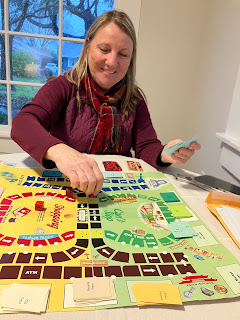

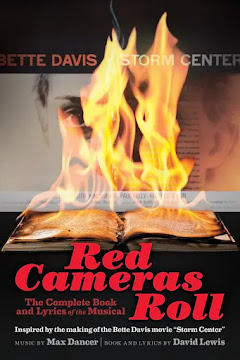

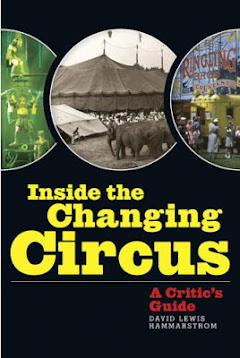
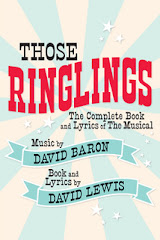
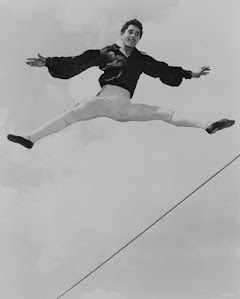
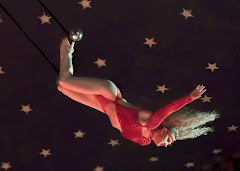



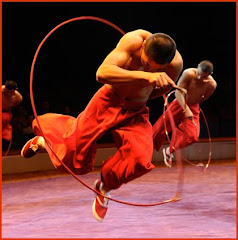
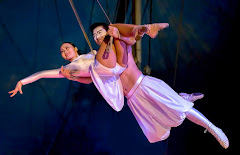

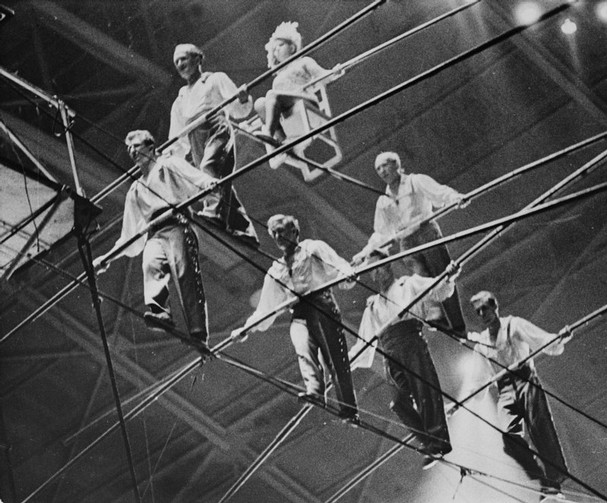
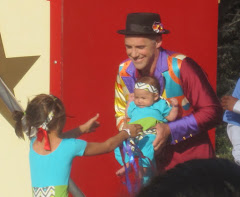
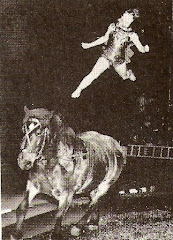
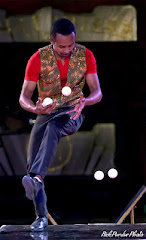
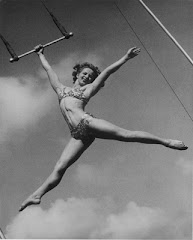


No comments:
Post a Comment